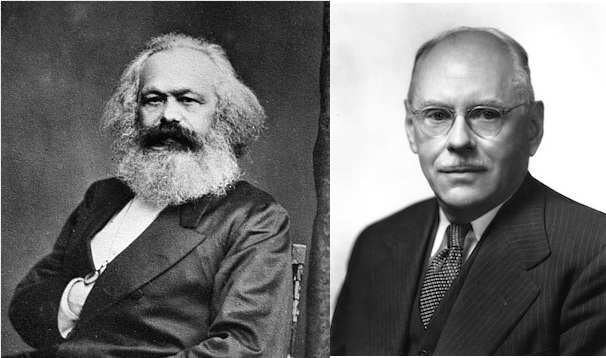This is an open access article from the European Journal of the History of Economic Thought.
The name “capitalism” derives from Marx’s false analogy between medieval land ownership and the “ownership of the means of production.” However, unlike medieval land, capital goods can be rented out, e.g., by Frank Knight’s entrepreneur, and then the capital owner does not hold those management or product rights. What then is the characteristic institution in our civilization? It is the voluntary renting of workers. What then is the relationship between Classical Liberalism, the dominant philosophy behind Economics (and “our civilization”), and a lifetime labor contract? Frank Knight had plenty to say against the doctrine of inalienable rights which disallows such contracts. Of all the neoclassical economists, past and present, only Frank Knight had the intellectual courage to face these issues and to forthrightly state the implications of the dominant philosophy behind “our civilization.”
The peculiar weakness of the position of one who owns earning power only in the form of personal capacities is, somewhat paradoxically, a consequence of the guarantee of personal freedom, general in modern nations, but logically not a part of the property system; in fact, it is a limitation on the ownership of one’s own person. Because of such “inalienable rights” a man cannot “capitalize” his earning power because a contract to deliver labour in the future will not be enforced. (Knight 1947, 26, fn. 3)
Keywords: capitalism, ownership of the means of production, fundamental myth, employment relation, Classical Liberalism, Karl Marx, Frank Knight, contractual lifetime servitude, inalienable rights.
